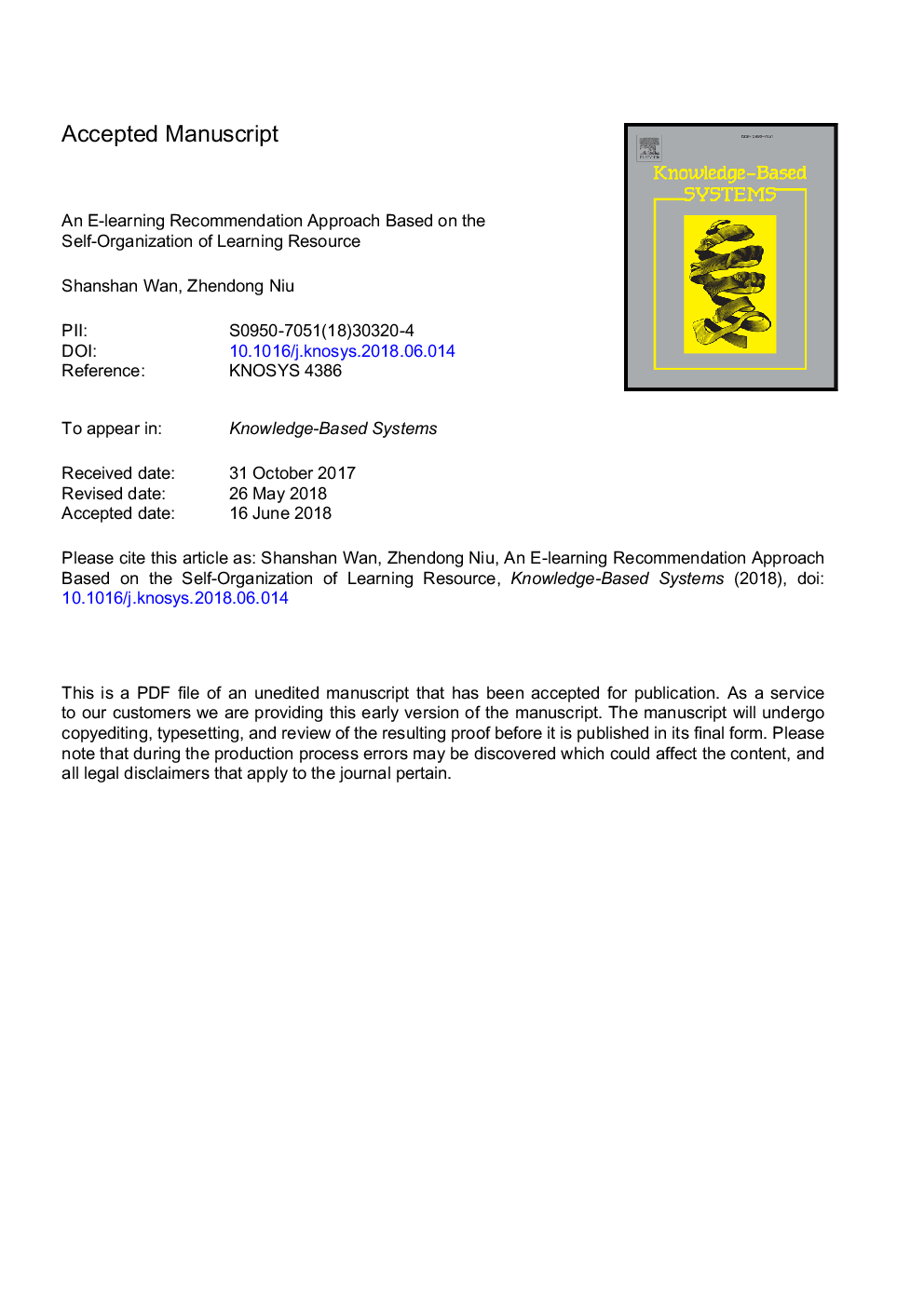| Article ID | Journal | Published Year | Pages | File Type |
|---|---|---|---|---|
| 10150986 | Knowledge-Based Systems | 2018 | 39 Pages |
Abstract
In e-learning, most content-based (CB) recommender systems provide recommendations depending on matching rules between learners and learning objects (LOs). Such learner-oriented approaches are limited when it comes to detecting learners' changes, furthermore, the recommendations show low adaptability and diversity. In this study, in order to improve the adaptability and diversity of recommendations, we incorporate an LO-oriented recommendation mechanism to learner-oriented recommender systems, and propose an LO self-organization based recommendation approach (Self). LO self-organization means LO interacts with each other in a spontaneous and autonomous way. Such self-organization behavior is conducive to generating a stable LO structure through information propagation. The proposed approach works as follows: firstly, LOs are simulated as intelligent entities using the self-organization theory. LOs can receive information, transmit information, as well as move. Secondly, an environment perception module is designed. This module can capture and perceive learner's preference drifts by analyzing LOs' self-organization behaviors. Finally, according to learners' explicit requirements and implicit preference drifts, recommendations are generated through LOs' self-organization behaviors. Based on applications to real-life learning processes, the ample experimental results demonstrate the high adaptability, diversity, and personalization of the recommendations.
Related Topics
Physical Sciences and Engineering
Computer Science
Artificial Intelligence
Authors
Shanshan Wan, Zhendong Niu,
